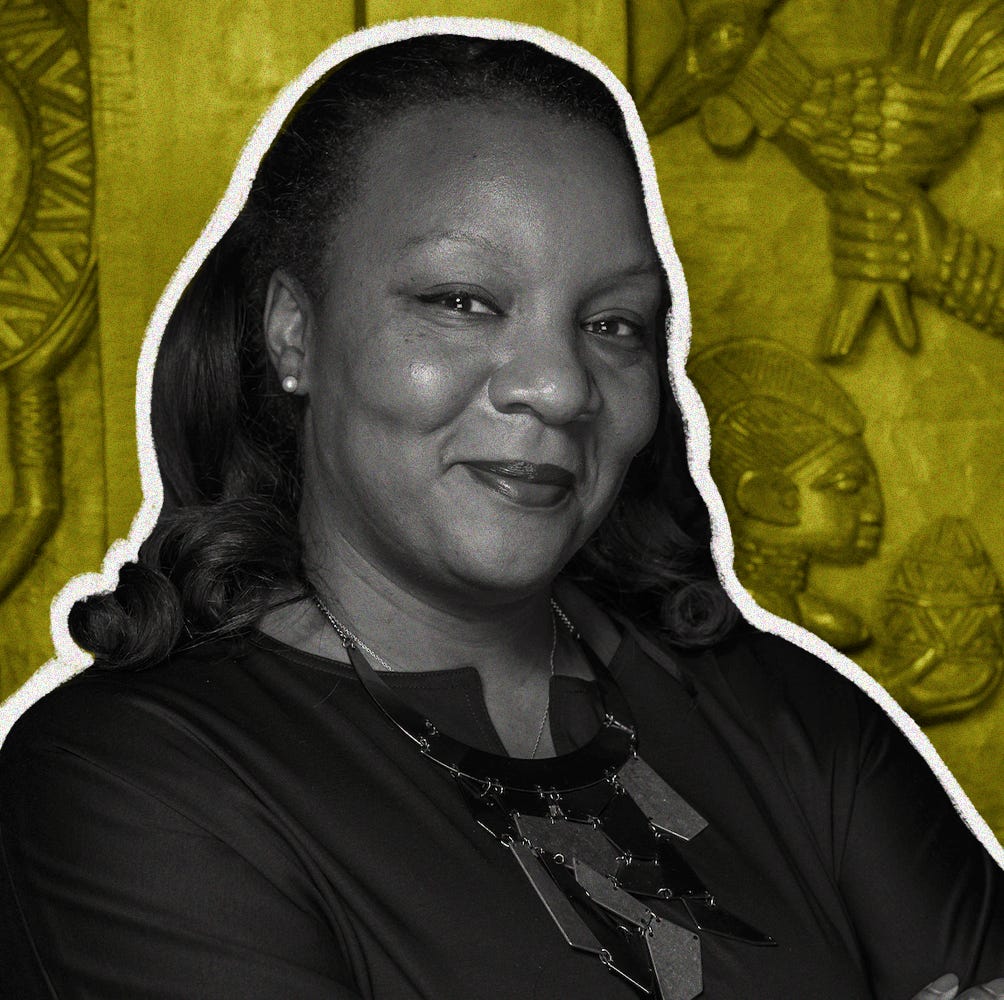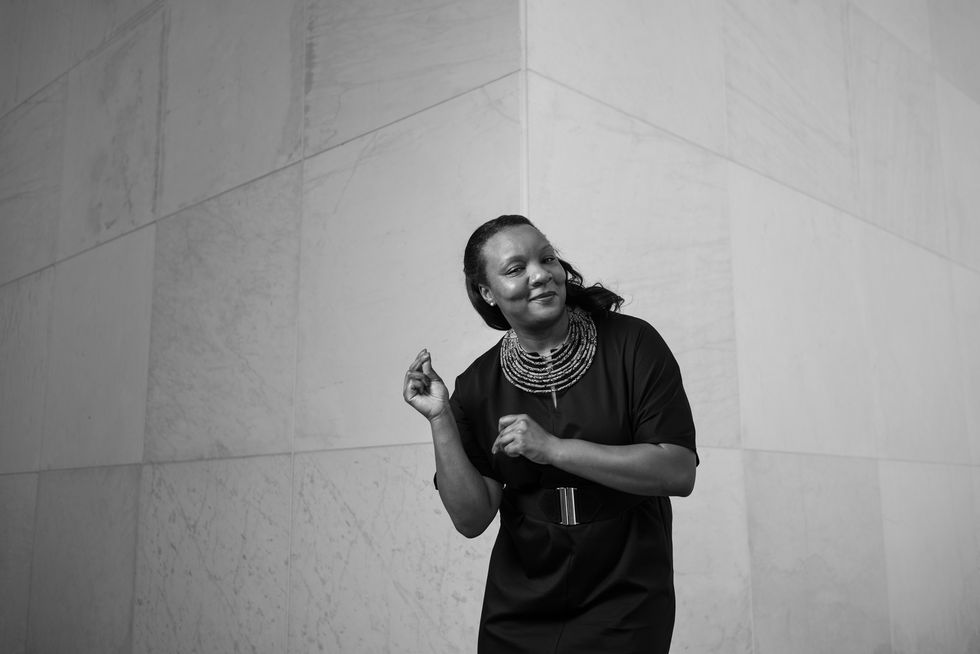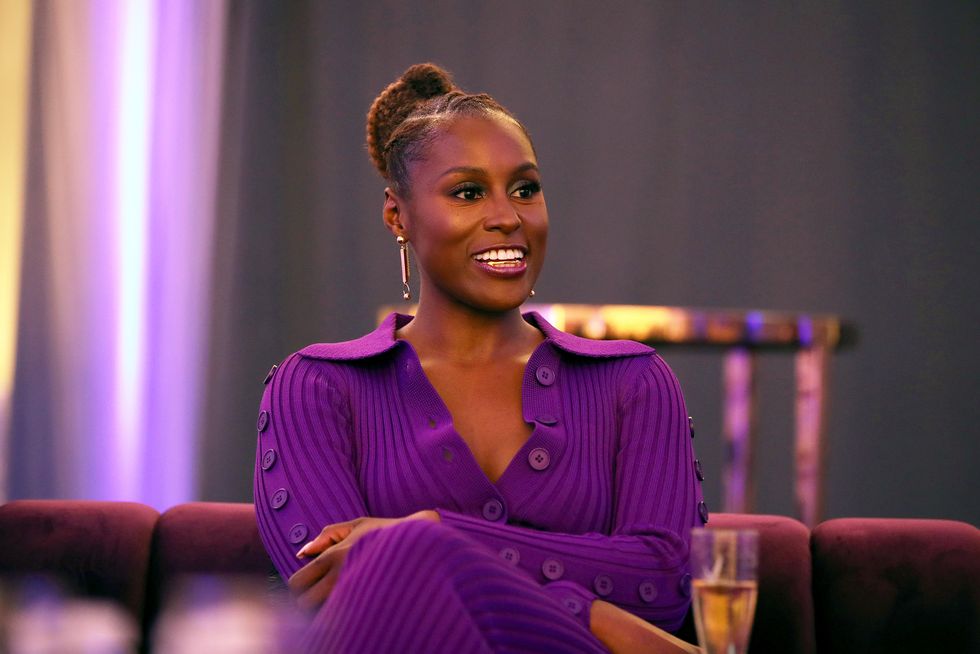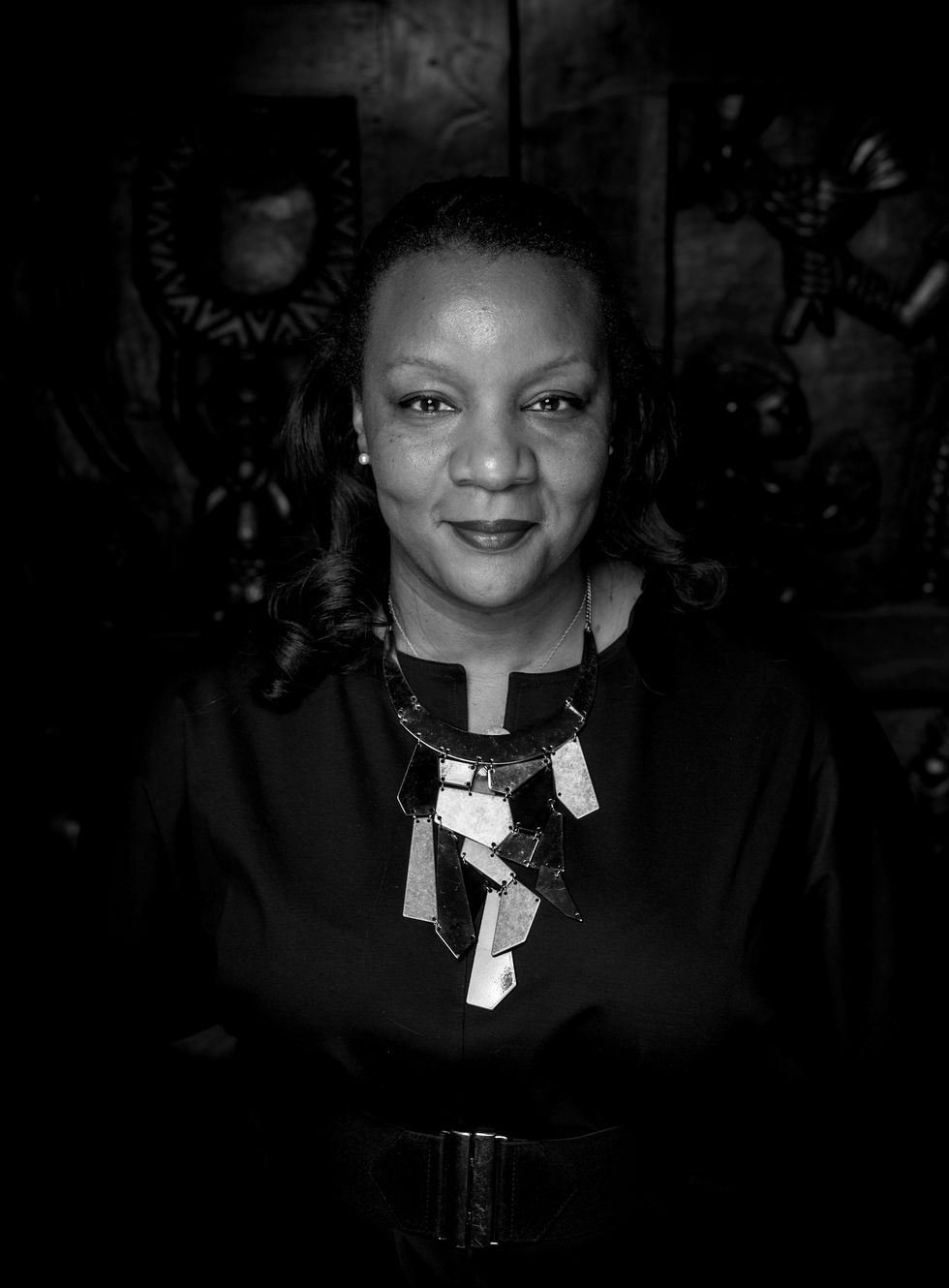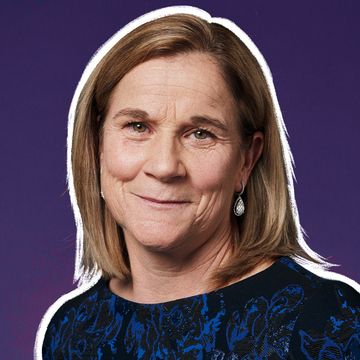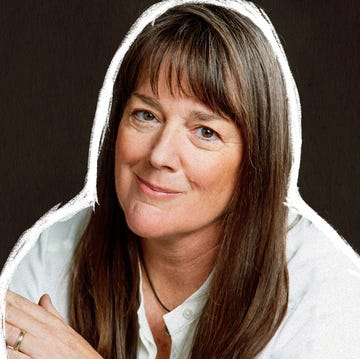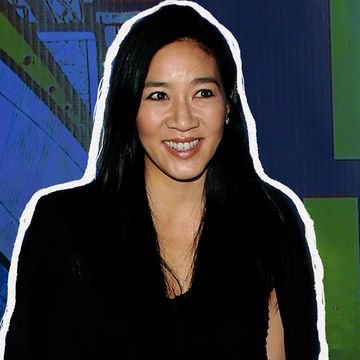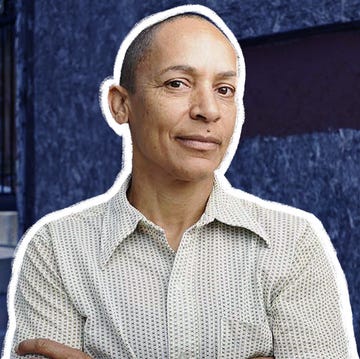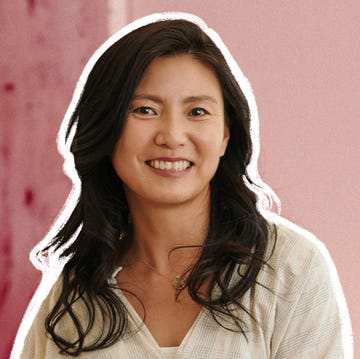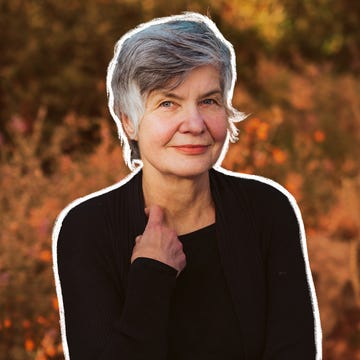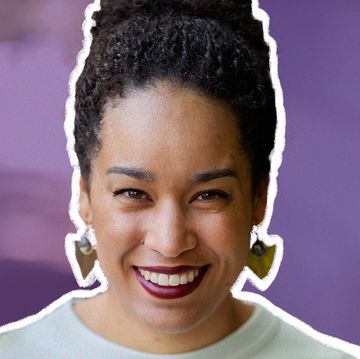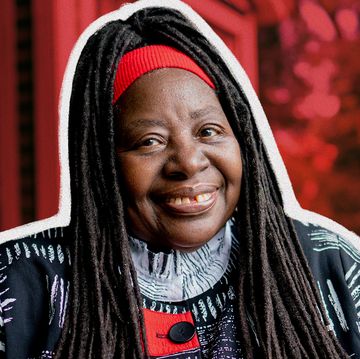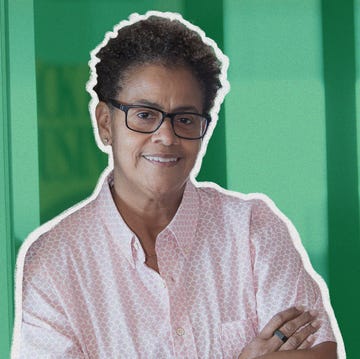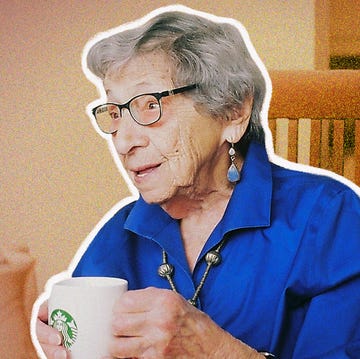In the ongoing Shondaland series Head Turners, we meet interesting women from every facet of life who are crushing it in their careers. From artists and tech mavens to titans of the boardroom, these women are breaking barriers, and they’ll share how you can too.
As the director of hip-hop culture and contemporary music at the John F. Kennedy Center for the Performing Arts, Simone Eccleston is breaking barriers to spotlight the types of artists who haven’t historically been represented at the storied cultural institution in Washington, D.C.
Beyond presenting musicians like The Roots and orchestrating Issa Rae’s HOORAE Kennedy Center Takeover, Eccleston is also the founder of The Black Genius Foundation, an organization she started in 2021 with the mission to celebrate and invest in the intellectual and creative prowess of Black artists, arts professionals, and organizations.
At the University of Pennsylvania, Eccleston earned a bachelor’s degree in African American history that laid the foundation for her career. Several of her professors became mentors and collaborators. After her time as an undergrad, she studied arts administration at Drexel University, solidifying her cultural path.
With her background in African American history and arts administration, Eccleston started her career freelancing with Revive Music Group then working for more than a decade in programming at Harlem Stage. The cultural curator recently spoke to Shondaland about the importance of finding strong mentors, supporting artists of color, and honoring your calling.
PRISCILLA WARD: Did you always know you wanted to work in music and culture?
SIMONE ECCLESTON: I recall being in high school and reading Toni Morrison’s The Bluest Eye. That was the spark. After reading that book, I knew that I wanted to be able to create a space for us to see ourselves reflected. I finally felt like I could see myself and my community in literature. I didn’t know where the path would take me, but when I went to do my college visit at UPenn, I sat in on an African American studies course, and I realized this is it.
PW: Who were your mentors there who helped guide you along your journey?
SE: Dr. Herman Beavers was the chair of the program, and he was so committed to us. He would facilitate sessions with visiting poets, and we would go out to dinner with them and hear them deliver their work. He was really committed to making sure that we had access to artists and professionals on campus and had the ability to really pursue every facet of our interest.
There was also Professor Guthrie Ramsey. He taught courses on jazz, and so that was amazing. I would later go on to work with countless jazz artists and still do so today. That was definitely incredible. What I loved about my professors was their unapologetic stance and commitment to us. I am forever grateful because being an African American studies major was one of the best decisions that I ever made. I didn’t understand where the path could lead, but I knew to follow that calling.
PW: How did you become the first-ever director of hip-hop culture and contemporary music at the Kennedy Center?
SE: A colleague was working at the Kennedy Center, and they sent the job posting to me and asked if there was anyone I knew who may be interested in applying for this position. I thought, “Well, what if I apply?”
I went through the application process. I had two rounds of interviews with, like, the second round of interviews [consisting of] somewhere between three to five different panels. I was waiting for a third round, but they actually called and offered me the position.
When I think about the work that I’m doing, which is being responsible for the creative leadership and artistic administration of our output of hip-hop culture and contemporary music programming, it has been the next progression in regard to my curatorial journey. While I was in graduate school, I was working at a Latin music organization in North Philadelphia, where I was building education programs and helping with organizational development.
When I moved to New York and worked at Harlem Stage, the mission was to support visionary artists of color through the commissioning, development, and presentation of their work. We were supporting emerging artists, many [who] went on to secure MacArthur awards or Doris Duke Performing Artist Awards.
When I think about my career, I think about it holistically because, regardless of the organization that I was at, I’ve been doing the same thing, which is fulfilling my personal mission of celebrating and investing in the intellectual investigation of the genius of artists of color, specifically Black artists.
PW: Who are some of the artists you’re currently working with, and how do you identify the next Kennedy Center artist?
SE: We’re committed to supporting artists who are committed to creating space for community and highlighting the genius of others. With each of these artists, they help to affirm that there is space for us all, what you have to contribute to the conversation is vital, [and] being authentically yourself and following your passion helps to create space for others to do the same.
We’re currently amid a two-year residency with The Roots, and that has been wonderful because we’ve been able to develop a multifaceted track. The HOORAE Takeover served as a critical space for the community. There were audience members from all over the country who were present for this multiday event.
PW: Beyond your work at the Kennedy Center, you also founded the Black Genius Foundation. What inspired you to create that organization?
SE: Our primary work is centered on granting awards, public programs, and digital initiatives. In essence, it’s about being able to elevate the past, present, future, and continuum of how the African diaspora continues to define genius. For me, part of the catalyst of this has been working in the field for over 15 years, supporting visionary artists in a plethora of ways but also understanding that more is needed.
I think about the number of times we’ve awaited the announcement of the MacArthur “Genius” awards, and there may be like three or five people that make it, but there are leagues of other individuals, artists, [and] arts professionals that should be included that aren’t listed in that capacity.
I’m grateful for all the organizations that currently exist and that help to support Black artists. We also know that there needs to be more robust mechanisms that support Black artists and their work. For us, it is being able to acknowledge the multifaceted angles of our genius.
During the pandemic, I watched the Toni Morrison documentary The Pieces I Am. In the documentary, they discuss how 48 writers wrote [the letter] “Black Writers in Praise of Toni Morrison” in 1988. They were holding [the literary world] accountable for not providing proper acknowledgment to Morrison and her contributions to the world of literature and culture.
The goal was to be able to say, “We love you. Thank you for doing extraordinary work for us.” When you hear Toni Morrison talk about it, she says it’s easily the most significant thing that happened in her writing life.
This is what the work is grounded in. Yes, we can talk about the void that exists, but for me, my emphasis is on the abundance and being able to express our gratitude, being able to provide flowers in real time, being able to celebrate the artists, individuals, arts professionals, and organizations that help to move our culture forward.
PW: What advice would you give to younger people interested in becoming cultural curators?
SE: Honor the calling, and do the work. Learn everything you can about an artist because it will allow you to serve as both a collaborator and an advocate. Embrace learning. Never stop learning. Continue to learn all that you can about the artists that you are excited about [and] that challenge you, because there is something to be learned from everyone that will help to inform who you are as a curator and the space that you’re able to create.
Priscilla Ward is a Washington, D.C.-based writer who has contributed to The Washington Post, Washington City Paper, Salon, Fast Company, and Architectural Digest.
Get Shondaland directly in your inbox: SUBSCRIBE TODAY
